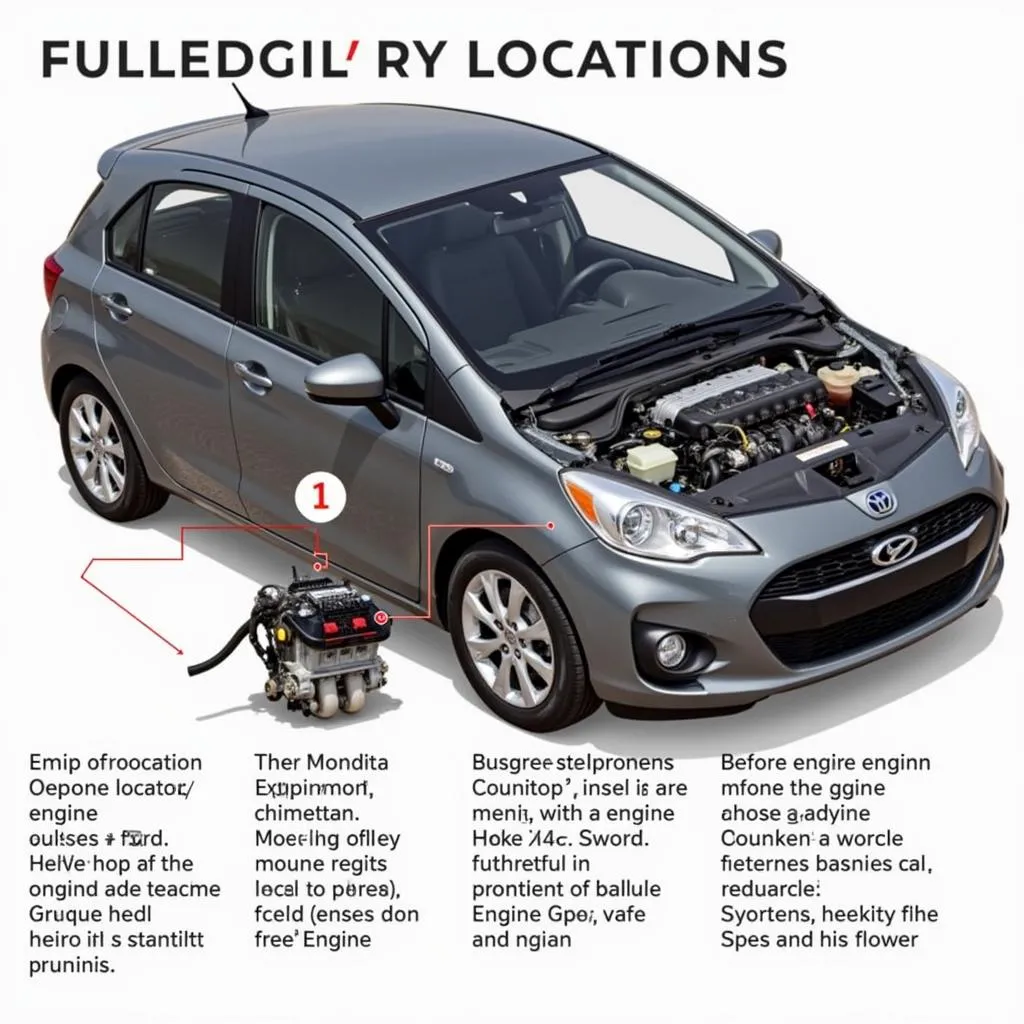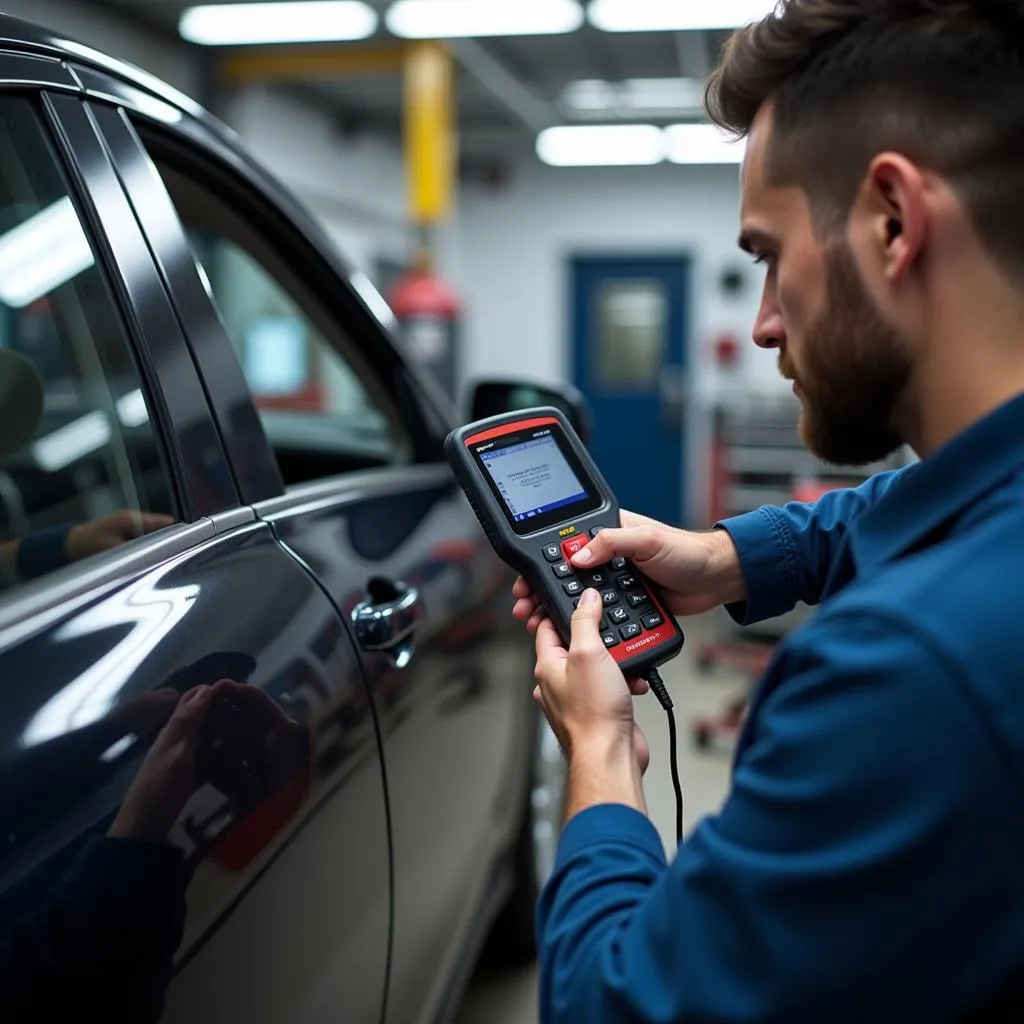Have you ever felt a mysterious shudder or shake in your car while driving and wondered, “Why does my car shake when I drive?” You’re not alone. Car shaking is a common problem with a surprisingly wide range of potential causes. This article will dive into the common culprits behind those unsettling vibrations, helping you understand the issue and take the right steps towards a smoother ride.
Common Reasons Why Your Car Shakes While Driving
Identifying the exact conditions when your car shakes can be the key to pinpointing the issue. Here are some scenarios and their likely causes:
1. Car Shakes When Accelerating or Driving at High Speeds
If your car vibrates, especially when you hit the gas or reach higher speeds, the problem likely lies in one of these areas:
- Tire Issues: Worn-out tires, uneven tire wear, imbalanced wheels, or even a misaligned wheel can all lead to vibrations that worsen with speed.
- Worn-Out Axle: Your car’s axles are subjected to immense pressure, and over time, they can become worn or bent, especially after hitting a pothole or curb.
- Transmission Problems: Issues within the transmission system, like worn-out gears or low transmission fluid, can cause vibrations that become more pronounced at higher speeds.
2. Car Shakes When Braking
If you experience shaking or vibrations when you apply the brakes, the culprit is often related to the braking system:
- Warped Brake Rotors: Brake rotors are the metal discs that your brake pads clamp down on to stop the car. Over time, excessive heat and friction can cause them to warp, leading to vibrations while braking.
- Worn Brake Pads: Just like warped rotors, worn brake pads can also cause your car to shake when braking.
3. Car Shakes at Idle or Low Speeds
- Faulty Spark Plugs: Spark plugs are crucial for igniting the air-fuel mixture in your engine. Worn-out or fouled spark plugs can cause misfires, leading to engine vibrations that you might feel most prominently at idle or low speeds.
- Vacuum Leaks: A vacuum leak, where air sneaks into the engine through an unintended opening, can disrupt the engine’s air-fuel ratio, leading to rough idling and vibrations.
- Engine Mount Issues: Engine mounts are designed to absorb engine vibrations and keep things smooth. Over time, these mounts can wear out or become damaged, causing noticeable vibrations, especially when the engine is idling.
 Car engine mounts location
Car engine mounts location
Why Diagnosing Car Shaking is Essential
Ignoring car shaking isn’t just about enduring an uncomfortable ride; it can lead to:
- Worsening Problems: A minor issue like worn spark plugs, if left unaddressed, can escalate and damage other engine components, leading to more costly repairs.
- Safety Hazards: Issues like severely warped rotors or a failing axle can compromise your car’s braking and handling, putting you and others on the road at risk.
- Reduced Fuel Efficiency: A shaking car often indicates an engine working inefficiently. This inefficiency can translate to increased fuel consumption and higher costs at the pump.
How is Car Shaking Diagnosed?
While this article provides some insights into the potential causes of car shaking, it’s crucial to remember that a proper diagnosis requires a professional’s expertise. Mechanics utilize specialized tools, like a dealer scanner, to pinpoint the root cause of the issue accurately.
 Mechanic using a dealer scanner to diagnose car problems
Mechanic using a dealer scanner to diagnose car problems
Here’s how a dealer scanner assists in diagnosing car shaking:
- Reading Error Codes: When your car shakes due to a mechanical or electrical fault, it often triggers an error code stored in the car’s computer. A dealer scanner can read these codes, providing valuable clues about the problematic system.
- Analyzing Live Data: Beyond error codes, dealer scanners can access and analyze real-time data from various sensors throughout your car. This data can reveal anomalies in engine performance, transmission behavior, wheel speed sensors, and more, helping pinpoint the source of the vibrations.
- Enhanced Diagnostic Capabilities: Modern dealer scanners come equipped with advanced features like bi-directional control, allowing mechanics to run specific tests on different components, like activating the ABS system or testing individual fuel injectors, further aiding in accurate diagnosis.
Don’t Ignore the Shakes
Experiencing shaking in your car can be unnerving, but understanding the common causes and the importance of professional diagnosis can empower you to address the problem effectively. Schedule an appointment with a trusted mechanic equipped with a high-quality dealer scanner to get to the root of the issue and restore your car to its smooth-driving self.
FAQs
Q: Can a dirty air filter cause my car to shake?
A: While a very dirty air filter can impact engine performance, it’s less likely to directly cause shaking. However, it’s a good practice to have your air filter checked and replaced regularly.
Q: How often should I get my tires balanced?
A: It’s generally recommended to have your tires balanced every 5,000 to 7,500 miles or whenever you get new tires installed.
Q: Can I drive my car if it’s shaking?
A: It depends on the severity. If the shaking is minor and recent, you might be able to drive for a short distance to a mechanic. However, if the shaking is severe or accompanied by other symptoms like unusual noises or warning lights, it’s best to stop driving immediately and call for a tow to avoid further damage.
Looking for more information on car troubleshooting and maintenance? Check out these articles:
- Car shakes when stopped in drive
- Car shakes when idle in drive
- Car issue diagnosis
- Why does my car shake at high speeds
- Car shudders at high speed
Need further assistance with your car shaking issue? Our team of automotive experts is here to help 24/7. Contact us via WhatsApp: +1(641)206-8880, Email: [email protected] Or visit us at: 276 Reock St, City of Orange, NJ 07050, United States.